Never Buy Skincare Products With These 5 Ingredients, Dermatologists Warn
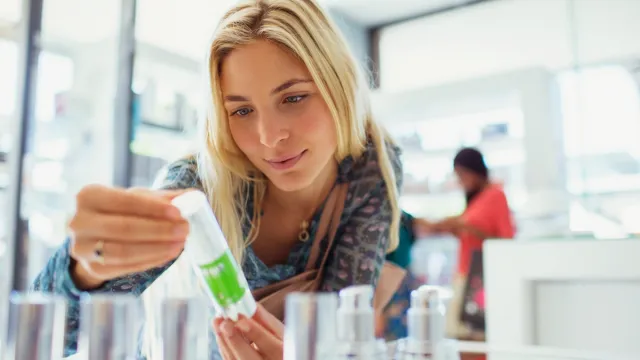
Regardless of your skin type, there are a few key skincare ingredients that are likely to improve your skin’s health, and by extension its appearance. Many dermatologists swear by gentle cleansers, sunscreen, vitamin C, retinol or retinoids, niacinimide (vitamin B3), and more. However, there are also common ingredients that can be overly harsh or sometimes even downright dangerous—and experts say they’re best avoided in your skincare products. Read on for the five worst skincare product ingredients, according to the pros.
RELATED: 104-Year-Old Woman Reveals Her Anti-Aging Skincare Routine.
1
Witch hazel
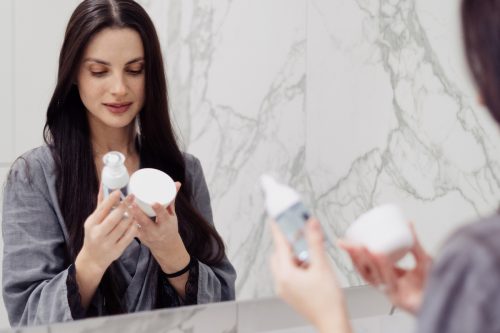
Toners claim to reduce the appearance of pores, hydrate and cleanse your skin, balance your skin’s pH, and more. Yet Shereene Idriss, MD, a New York City-based dermatologist, said in a recent YouTube post that toners are an “absolutely unnecessary” part of your skincare routine—and that virtually all of the claims about them are untrue.
“I am a board-certified dermatologist and frankly, I can’t tell you what a toner is. It is whatever a company wants it to be. And is it something that you need in your skincare routine? The answer is absolutely no,” she says.
Idriss is especially skeptical of witch hazel-based products. “One of the most famous toners out there is one with witch hazel. Witch hazel is known to be extremely irritating to people with sensitive skin… and frankly, I haven’t seen anyone coming into my practice telling me they use witch hazel and they have the most amazing skin,” she notes.
RELATED: 8 Skincare Mistakes That Make You Look Older.
2
Rough exfoliants
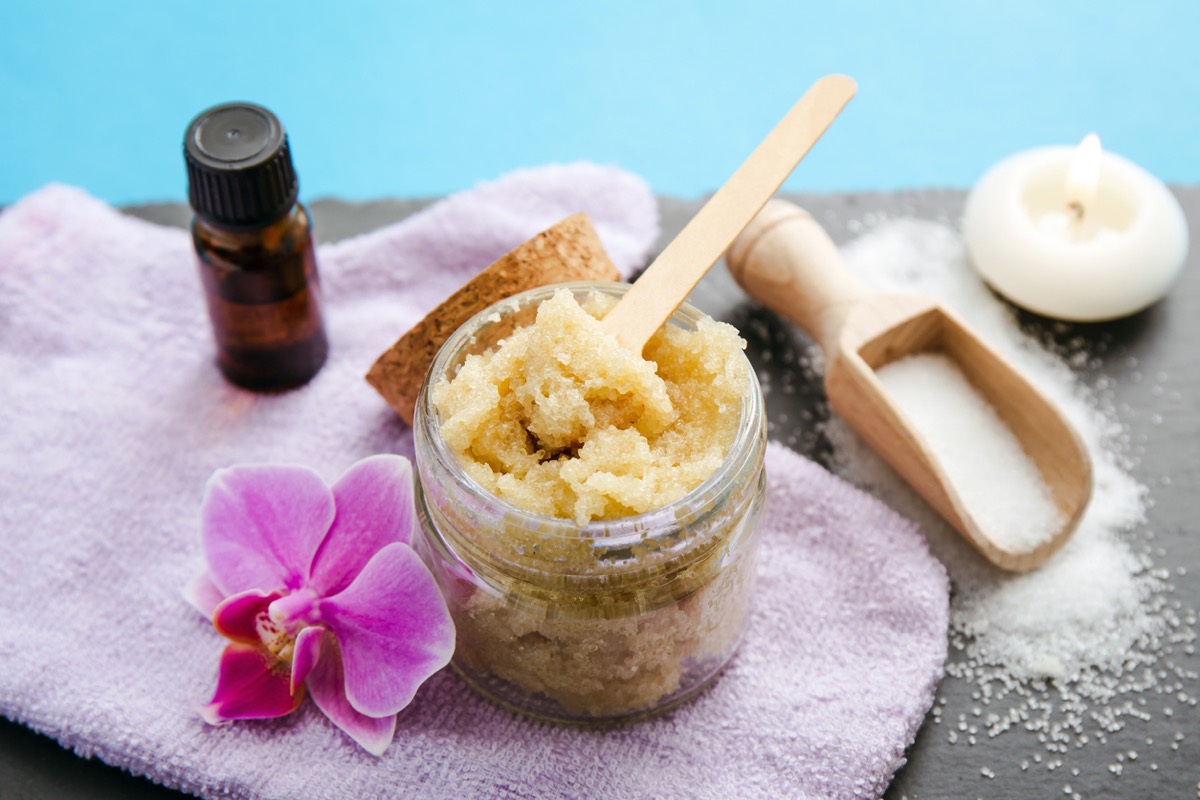
Physical exfoliants use granular substances to slough off layers of dead skin, in theory leaving your skin more soft, smooth, and supple. However, Idriss takes issue with rough exfoliants, saying they can easily damage your skin.
“You don’t need a scrub… Scrubs are very abrasive, they tend to cause micro-tears on your skin that can over time cause inflammation which can actually worsen signs of aging and worsen the quality of your skin,” she says.
3
Fragrance

In a recent TikTok video, content creator and board-certified dermatologist Mina Amin, MD, said there’s one common skincare ingredient she’s “really not OK with.”
“For me, I don’t like when skincare has fragrance in it,” said Amin. “It can be really irritating for your skin and it’s not necessary. You can have perfume that smells good—your skincare doesn’t have to smell good.”
4
Parabens
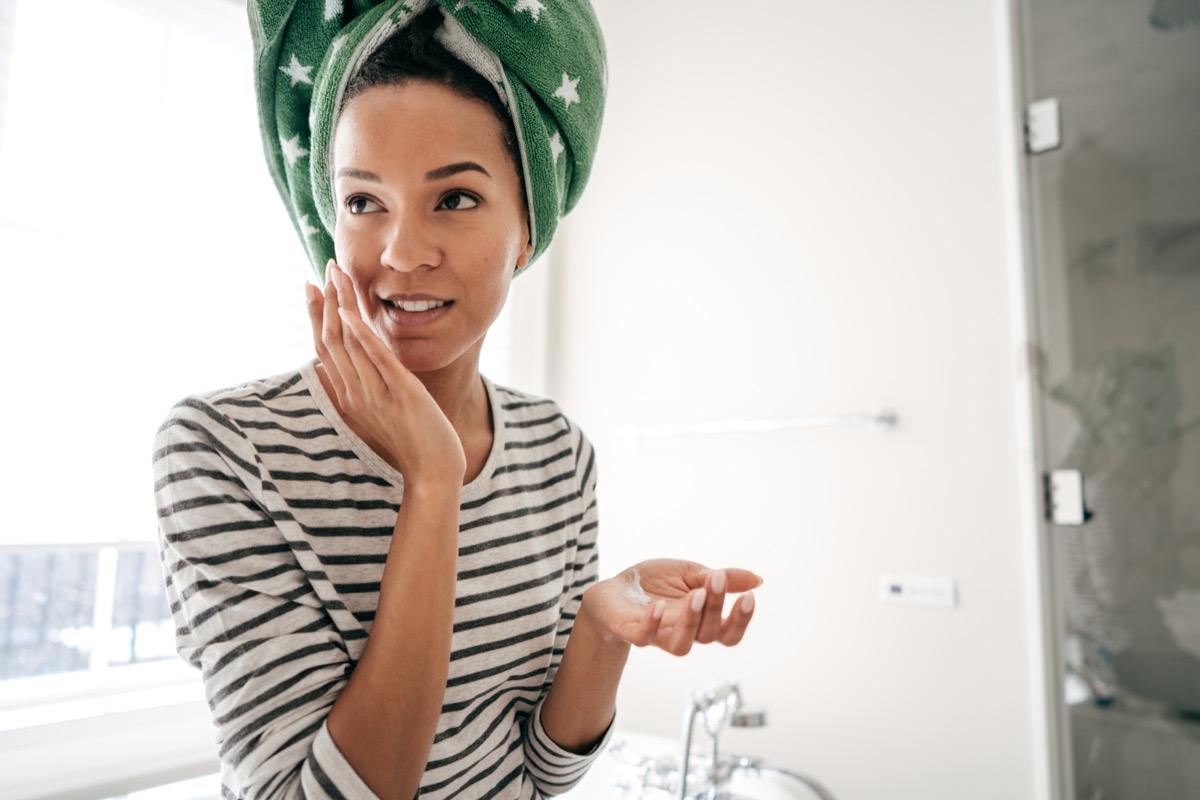
Parabens are used as preservatives in beauty products, but experts say they do more harm than good.
“Here in the United States, our skincare products are full of chemicals that are banned in Europe,” said plastic surgeon Tony Youn, MD, in a recent TikTok video. “Some of the worst of these are parabens. Parabens have been shown to have weak estrogenic effects, basically acting as hormone mimickers.”
RELATED: 8 Skincare Ingredients That Help Hide Your Wrinkles, Experts Say.
5
BHA and BHT
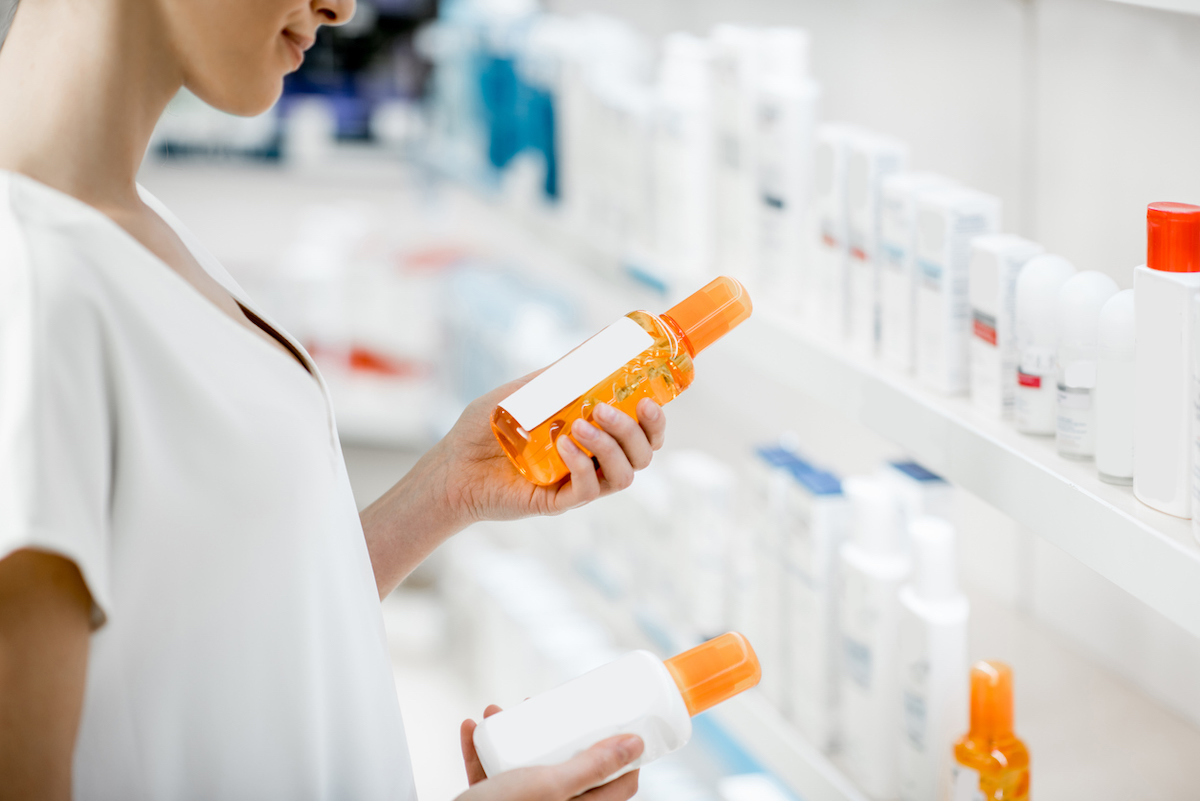
Jonas Keuhne, MD, a family medicine doctor and content creator, says that people should also look out for any products containing Butylated hydroxyanisole (BHA) and Butylated hydroxytoluene (BHT). These are often used in foods as preservatives and can also be found in a range of skincare and beauty products.
“We don’t need BHA and BHT—that’s chemical stuff that doesn’t do anything good for us,” he said in a recent TikTok post, noting that those ingredients are banned in Europe, Canada, Japan, Australia, and New Zealand.
“The FDA considers them to be safe, while the NIH recognizes them as a possible human carcinogen, possibly cancer-causing, and California lists BHA as a carcinogen in Prop 65,” continues Keuhne, adding that he personally avoids any product that lists BHA or BHT as an ingredient. “A reasonable, and in my opinion safe, alternative for BHA and BHT is vitamin E—also an antioxidant, but natural.”
Best Life offers the most up-to-date information from top experts, new research, and health agencies, but our content is not meant to be a substitute for professional guidance. When it comes to the medication you’re taking or any other health questions you have, always consult your healthcare provider directly.